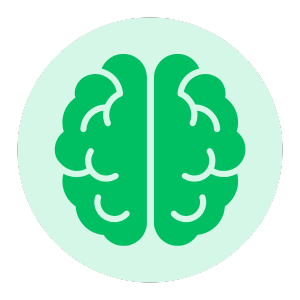Substance Addiction Assessment Tool
Evaluate behaviors and patterns to identify possible substance addiction traits
This self-assessment helps identify possible symptoms associated with substance addiction.
Please select the category that best describes you to begin the evaluation.
Male
Addiction assessment for adult males
Female
Addiction assessment for adult females
Child
Addiction assessment for children/teens
Results are not a diagnosis - consult a healthcare professional for evaluation. © 2025
Addiction Assessment Results
Based on your responses, here is your addiction profile
Key Characteristics
- Resilience and adaptability
- Awareness of triggers
- Motivation to improve
- Ability to seek support
- Difficulties controlling use
- Preoccupation with substances
- Negative impacts on daily life
- Experiencing withdrawal symptoms
Management Strategies
- Establish healthy routines
- Avoid triggers and high-risk situations
- Practice stress management techniques
- Keep a support network
- Counseling or therapy
- Detox and rehabilitation programs
- Support groups (e.g., AA, NA)
- Medical evaluation and care
Recommended Resources
- Substance Abuse and Mental Health Services Administration (SAMHSA)
samhsa.gov | Helpline, treatment and support resources - National Institute on Drug Abuse (NIDA)
nida.nih.gov | Research and info on substance use - Alcoholics Anonymous (AA)
aa.org | Peer support for alcohol addiction
Substance Addiction: Understanding Recovery and Treatment Options
Comprehensive information about substance use disorders, detox processes, treatment approaches, and recovery resources
Substance addiction affects millions worldwide, with recovery journeys as unique as the individuals experiencing them. From questions about how long does suboxone stay in your system to finding an IOP near me, understanding addiction and recovery requires comprehensive information about substances, treatment options, and support resources. This guide explores substance addiction, recovery timelines, and pathways to sustainable sobriety.
Related Mental Health Assessments
If you're concerned about substance use or related mental health conditions, consider these assessments:
Understanding Substance Detection and Sobering Times
One of the most common questions in addiction recovery involves understanding how long substances remain detectable in the body. This knowledge is crucial for workplace testing, treatment planning, and personal recovery goals.
Detection Windows for Common Substances
Different substances have varying detection times. For example, people often search for how long does meth stay in your system or how long does cocaine stay in urine for chronic users. Opioids like oxycodone and Percocet typically remain detectable for 2-4 days, while how long suboxone stays in your system can vary from 2-8 days depending on metabolism and usage patterns.
Sobering Up and Detox Processes
The process of sobering up varies by substance. While how long does it take to sober up from alcohol might be measured in hours, detoxing from substances like marijuana requires different approaches. Many explore detox drinks for weed or weed detox kits for accelerated cleansing, though these should be used cautiously and under professional guidance.
Treatment Options and Recovery Resources
Effective addiction treatment typically involves a combination of medical intervention, therapy, and ongoing support. From IOP near me (Intensive Outpatient Programs) to residential treatment centers, various options exist to support recovery.
Medication-Assisted Treatment
Medications like Suboxone (buprenorphine/naloxone) can help manage opioid withdrawal symptoms and cravings. However, questions about suboxone withdrawal and how long does suboxone withdrawal last are common among those considering this treatment option. It's important to work with online suboxone doctors or local providers for proper medication management.
Therapy and Support Programs
Therapeutic approaches including cognitive-behavioral therapy, group counseling, and specialized modalities like those offered by CSAT therapists (Certified Sex Addiction Therapists) can address underlying issues contributing to addiction. Support groups like Narcotics Anonymous and Al Anon provide community support through structured programs like the 12 steps.
Did You Know?
Addiction affects nearly 21 million Americans, yet only 10% receive treatment. The recovery process is highly individual, with some people benefiting from medication-assisted treatment while others find success with complete abstinence approaches. Support resources like intherooms offer virtual recovery meetings, making support accessible to those who cannot attend in-person meetings.
Recognizing Substance Use and Withdrawal
Understanding the signs of substance use and potential withdrawal symptoms is important for both those experiencing addiction and their loved ones.
Identifying Substance Use
Questions like how to tell if someone is high or specific queries about signs someone is on meth reflect concerns about loved ones' potential substance use. Behavioral changes, physical symptoms, and social withdrawal can all indicate possible substance use issues.
Understanding Withdrawal Symptoms
Withdrawal experiences vary significantly by substance. Klonopin withdrawal from benzodiazepines requires medical supervision due to potential seizure risks, while weed withdrawal typically involves irritability, sleep disturbances, and cravings. Understanding these patterns helps in seeking appropriate medical support during detoxification.
Recovery Maintenance and Relapse Prevention
Sustainable recovery involves ongoing maintenance strategies and relapse prevention planning. Tools like the Wellness Recovery Action Plan (WRAP) help individuals identify triggers, develop coping strategies, and create crisis plans.
Building a Support Network
Recovery is often strengthened through community support. Programs like Narcotics Anonymous with their foundational text (Narcotics Anonymous book) and Al Anon for families provide structured support systems. Online resources and hotlines like the AA hotline offer immediate support during difficult moments.
Addressing Co-occurring Disorders
Many individuals with substance use disorders also experience mental health conditions like depression or anxiety. Finding depression treatment near me that addresses both addiction and mental health simultaneously (dual diagnosis treatment) often yields better outcomes than treating each condition separately.
Additional Assessments You Might Find Helpful
Understanding your mental health is an important part of recovery. Consider these additional assessments:
Finding Your Path to Recovery
Substance addiction recovery is a journey that looks different for everyone. Whether you're researching how long substances stay in your system, seeking IOP programs near me, or exploring medication-assisted treatment options, numerous resources and approaches are available to support your recovery journey.
If you or someone you know is struggling with substance use, remember that help is available and recovery is possible. Consider reaching out to addiction specialists, exploring treatment options, and building a support network that can help navigate the challenges of addiction and recovery.
